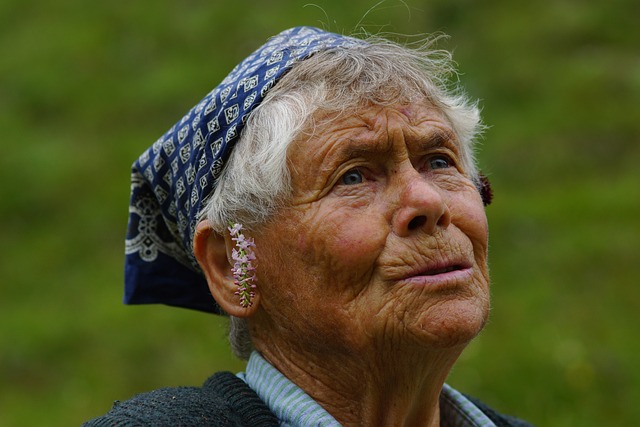Elderly Companion Services are vital for seniors facing mobility issues, cognitive decline, or living alone, providing tailored meal support that caters to dietary restrictions and preferences while promoting healthy eating to manage chronic health conditions like hypertension, diabetes, and heart disease. These services extend beyond nutrition, offering meaningful companionship that mitigates the risks of social isolation and depression. They incorporate culturally sensitive meal options and involve seniors in meal preparation, enhancing mental health and providing a sense of purpose, which contributes to an improved quality of life. For families, these services offer peace of mind that their elderly relatives are receiving both dietary assistance and companionship, which are essential for maintaining health and independence. The synergy of combining meal prep assistance with companion services further enriches seniors' lives by offering structured daily routines that include shared activities like cooking and dining, fostering social interaction, combating loneliness, and enabling health monitoring through changes in eating patterns. This holistic approach to elderly care ensures comprehensive support for the nutritional and emotional well-being of older adults.
Navigating the golden years with vitality and grace hinges on a multitude of factors, among them, nutritional well-being and social engagement. This article delves into the synergistic relationship between meal preparation and elderly companion services, highlighting how these elements intertwine to enhance the quality of life for seniors. We explore the significance of tailored meal prep in maintaining elder health, the impact of shared meals on fostering connections, and the integration of companionship within meal prep assistance programs. Through these lenses, “Elderly Companion Services” emerges as a beacon in safeguarding the holistic well-being of our aging population.
- Elderly Nutritional Well-Being: The Role of Meal Preparation in Senior Health
- Fostering Social Connections through Elderly Companion Services and Meal Sharing
- Integrating Meal Prep Assistance with Companionship for the Elderly: A Holistic Approach to Daily Living
Elderly Nutritional Well-Being: The Role of Meal Preparation in Senior Health

The intersection of meal preparation and elderly companion services is a critical aspect of maintaining nutritional well-being in seniors. As aging individuals often face challenges such as decreased mobility, cognitive decline, or living alone, consistent access to nutritious meals becomes increasingly vital for their health. Elderly companion services play a pivotal role in ensuring that seniors receive the necessary dietary support. These services not only provide companionship, reducing the risk of social isolation and depression, but also assist with food shopping, meal planning, and preparation, tailored to dietary restrictions or preferences. This collaborative approach helps to address the complex needs of the elderly, promoting a balanced diet that can help manage chronic conditions such as hypertension, diabetes, and heart disease.
Moreover, meal preparation by elderly companion services is designed to be both nutritionally sound and culturally sensitive, respecting the tastes and culinary traditions of each senior. The engagement in meal preparation activities also offers a sense of purpose and fulfillment, contributing positively to an individual’s mental health and overall quality of life. By integrating these services into daily routines, families can have peace of mind knowing that their loved ones are not only receiving the companionship they need but are also nourished with meals that support their health and vitality.
Fostering Social Connections through Elderly Companion Services and Meal Sharing

Elderly Companion Services play a pivotal role in nurturing social connections among seniors, who may often experience isolation due to various factors such as the loss of loved ones or reduced mobility. These services not only provide companionship but also facilitate engagement in daily activities, including meal preparation and sharing. The act of preparing meals together can serve as a catalyst for conversation, laughter, and shared memories, fostering a sense of belonging and community. Moreover, these moments around the table offer an opportunity for seniors to maintain their nutritional intake while enjoying the companionship that mitigates feelings of loneliness. The shared experience of mealtime is enriched when accompanied by meaningful interactions, making it a multifaceted approach to combating social isolation.
Meal sharing within Elderly Companion Services extends beyond mere nutrition; it encapsulates the essence of human connection and care. By participating in the preparation and consumption of meals, companions can create a routine that seniors look forward to, providing structure and something to anticipate in their daily lives. This regular interaction also allows for the monitoring of each other’s health and well-being, as changes in appetite or eating habits can be early indicators of potential health issues. Through these services, mealtime becomes more than a nutritional necessity; it evolves into a moment of connection, where stories are exchanged, friendships are formed, and the value of shared experiences is underscored.
Integrating Meal Prep Assistance with Companionship for the Elderly: A Holistic Approach to Daily Living

The integration of meal prep assistance with elderly companion services offers a multifaceted approach to enhancing daily living for seniors. This holistic strategy addresses not only the practical aspect of preparing nutritious meals but also the emotional and social well-being that comes from companionship. Meal prep assistance, provided by dedicated caregivers or through innovative meal kit services tailored for seniors, ensures that elderly individuals receive well-balanced, healthful meals, which can be a challenge due to mobility issues, dietary restrictions, or the simple lack of motivation. These services often come with the added benefit of regular interaction, which helps mitigate feelings of isolation and loneliness often experienced by the elderly.
Elderly companion services bridge the gap between nutritional needs and social engagement. Professional companions offer not only assistance in meal preparation but also valuable companionship, engaging seniors in activities that foster a sense of purpose and joy. This dual approach to mealtime ensures that each meal is an opportunity for both sustenance and social connection, which are critical components of healthy aging. The presence of a companion during meal times can also provide peace of mind to families, knowing their loved ones are not only being fed but are also receiving the emotional support and companionship they need to thrive in their later years.
In conclusion, the interplay between meal preparation and companionship plays a pivotal role in enhancing the elderly’s nutritional well-being and social connectivity. The evidence underscores the importance of integrating meal prep assistance with elderly companion services, offering a holistic approach to daily living that supports both health and happiness. By doing so, we not only address the immediate needs of nutrition but also foster meaningful relationships that enrich the lives of seniors, thereby improving their overall quality of life. Elderly companion services thus emerge as a vital aspect of eldercare, offering a nurturing environment where nutritious meals are shared and companionship is key, ensuring that the elderly remain active participants in their communities.




